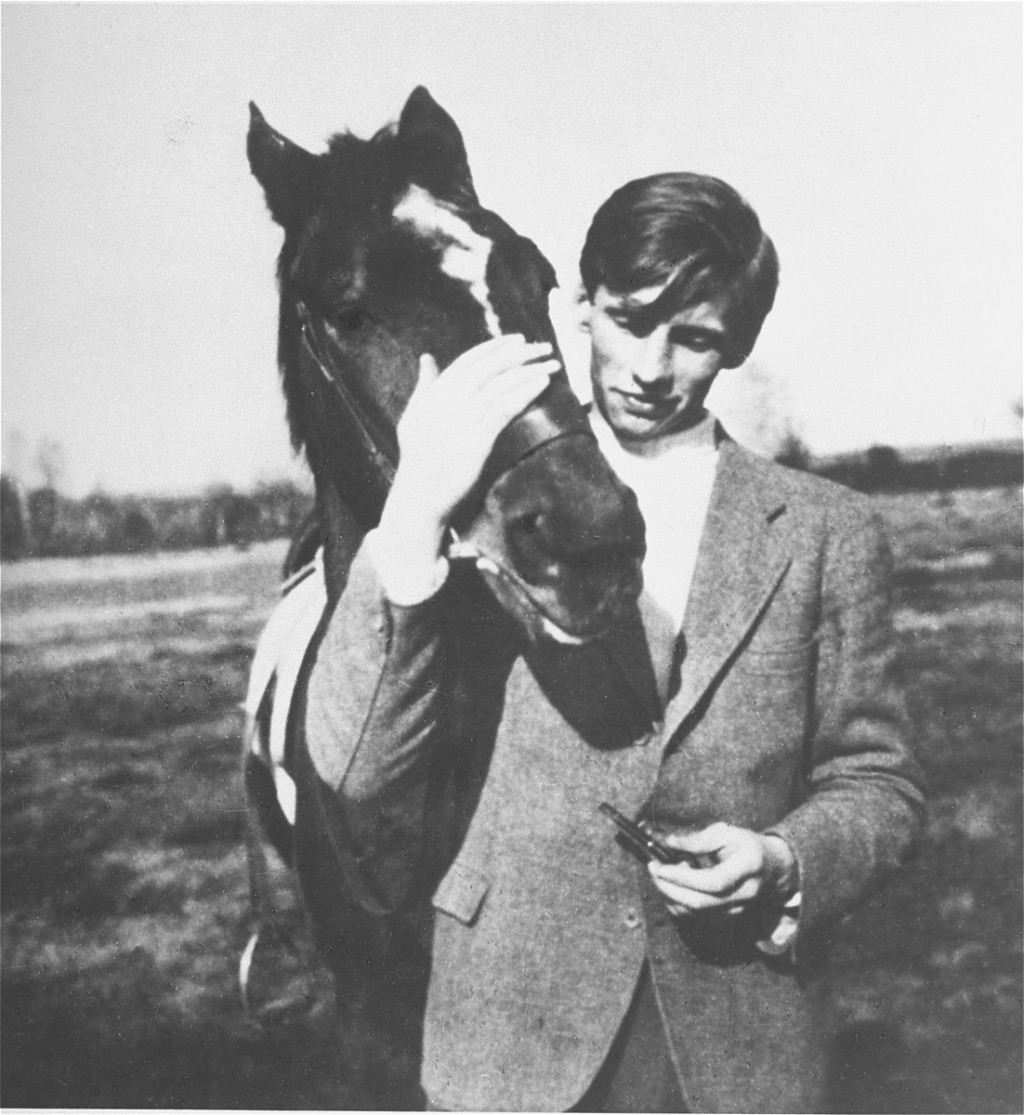
The White Rose Opposition Movement
In 1942 Hans Scholl founded the “White Rose” movement with some of his fellow medical students. Among the White Rose members were Sophie Scholl, Christoph Probst, Willi Graf, and Alexander Schmorell. The “White Rose” movement was one of the few German groups that spoke out against Nazi genocidal policies.
Nazi tyranny and the apathy of German citizens in the face of the regime’s “abominable crimes” outraged idealistic “White Rose” members. Many of them had heard about the mass murder of Polish Jews; as a soldier on the eastern front, Hans Scholl had also seen firsthand the mistreatment of Jewish forced laborers and heard of the deportation of large numbers of Poles to concentration camps.
At great risk, “White Rose” members transported and mailed mimeographed leaflets that denounced the regime. In their attempt to stop the war effort, they advocated the sabotage of the armaments industry. “We will not be silent,” they wrote to their fellow students. “We are your bad conscience. The White Rose will not leave you in peace!" Because the students were aware that only military force could end Nazi domination, they limited their aims to achieve “a renewal from within of the severely wounded German spirit.”
After the German army’s defeat at Stalingrad in late January 1943, the Scholls distributed pamphlets urging students in Munich to rebel. But in the next month, a university janitor who saw them with the pamphlets betrayed them to the Gestapo (German secret state police).
The regime executed Hans and Sophie Scholl and Christoph Probst on February 22, 1943. Officials also eventually arrested and executed philosophy professor Kurt Huber and the rest of the “White Rose” members.
At his trial Huber remained loyal to the eighteenth century German philosopher Immanuel Kant’s ethical teaching, as he concluded his defense with the words of Kant’s disciple Johann Gottlieb Fichte:
And thou shalt act as if
On thee and on thy deed
Depended the fate of all Germany,
And thou alone must answer for it.
Critical Thinking Questions
What pressures and motivations moved these students to action?
What avenues and methods do college students and protesters of any age have in today's societies? What risks might they face?

